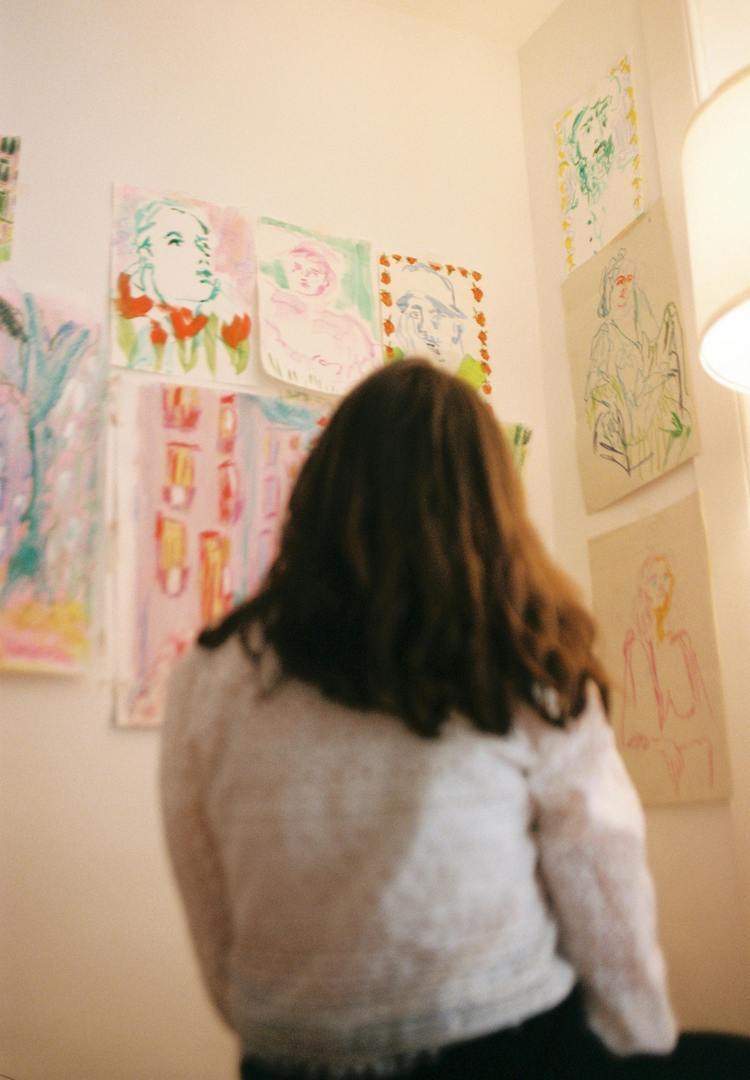How it feels to move in with a partner after surviving domestic abuse
Words by Leni Norton*
Learning to feel safe at home after living with your abuser can feel impossible.
Content warning: This article contains descriptions of domestic abuse.
For one in four Australian women, home is an unsafe place. Intimate partner violence is endemic in this country. It takes the life of one woman each week and contributes to the illness, disability and premature death of adult women more than any other factor. Although those statistics are astonishingly high, we don’t enter relationships expecting our partners to turn on us.
We don’t anticipate that we could become one of those women. Abusive relationships follow a pattern known as coercive control, in which the abuser love bombs their victim before gradually whittling away their sense of self, their support systems and their perception of reality. This makes the victim feel incredibly isolated and trapped and can often make it difficult for them to recognise that what they’re experiencing is abuse.
Interested to hear how others navigate the world? Head to our Life section.
Coercive control is present to varying degrees in every single abusive relationship and follows a very particular pattern. After the abuser has established love and trust to bond their victim to them, they begin alienating them from their friends and family.
Once they’ve isolated the victim from their loved ones, the abuser can monopolise the victim’s perception by gaslighting them into adopting their version of reality and losing trust in their own thoughts and views.
Coercive control also involves the abuser enforcing trivial demands, alternating punishments with rewards – which ensures the victim is receiving enough crumbs of love that they believe their abuser is sorry or capable of change – threats, degradation, and demonstrations of omnipotence. While these relationships often involve physical violence, it isn’t always present and the psychological abuse can cause the same level of trauma for the victim – if not greater.
I lived with my abuser for much of our almost two-year relationship, during which time I gradually relinquished control of my life to him. It got to the point that he had all of my passwords, would cross-check my phone bills against my text and call logs to make sure I wasn’t hiding or deleting anything, replied to texts from my phone pretending to be me, and hid my keys, clothes, or shoes to prevent me from going to work or seeing friends.
I wasn’t allowed to have male friends or talk to other men, post selfies on social media, watch porn or dress in certain ways and when I was allowed to go somewhere without him, I’d have to prove I wasn’t lying about where I was by sending him photos. I was frequently physically and psychologically abused and on the multiple occasions I tried to leave him, he threatened both of our lives.
After I escaped that relationship, I was left with post-traumatic stress disorder (PTSD) that I’m still working to heal almost a decade later. It took years before I was ready to date again. My first intimate relationship after leaving my abuser put my PTSD into overdrive. I couldn’t sleep through the night next to him, I flinched if he made a sudden movement near me and I overanalysed everything he said and did looking for potential red flags.
It felt isolating in a whole new way – I didn’t want to be alone anymore but it was too exhausting and triggering to try and let someone in again. After that relationship failed, I eventually met someone else. I could tell this partner was worth giving it a real shot, so I sought specialist family violence counselling on top of the cognitive behaviour therapy I was already undertaking.
I’ve since shifted to schema therapy, which I’ve found most effective for me, and although I’ve worked through a lot of the trauma my ex left me with, it can still be challenging to navigate a relationship.
Conflict, and even situations that may potentially evoke conflict, activate my fight, flight or freeze response. Logically, I know my partner will listen to me during disagreements and that we will work through issues as a team, but my nervous system still equates tension and conflict with danger.
Moving in with my current partner brought on a level of anxiety I did not expect. Despite giving the decision plenty of time and thought, I obsessed over whether it was the right choice. Could I even trust myself to make good decisions, having gotten it so wrong last time? The lead-up to the move involved several breakdowns, sessions with my psychologist and vulnerable discussions with my partner.
My psychologist helped me see that this is not the same situation as when I last lived with a partner. Based on the nature of my current relationship and the person my partner has proved themselves to be throughout our relationship so far, it’s very unlikely they would suddenly become abusive. And even if that was the case, I’m now much better equipped to recognise red flags before the situation becomes dire and I have a strong support network around me this time.
Therapy also helped me come to the realisation that it isn’t the abuse itself I fear, but being stuck in a situation like that again. I find comfort in reminding myself that even if the relationship deteriorates, I won’t be trapped.
There are still times I feel uneasy living with a partner again after my previous experience. Although my current partner makes me feel safe and loved, there’s something deep-rooted in me now that fears punishment if I do something ‘wrong’. I was so accustomed to living in fear and always being on high alert in the past that I still find myself hyper-vigilantly monitoring potential shifts in my partner’s mood.
Domestic abuse is a breach of love and trust like no other and the trauma it leaves behind is complex and all-consuming. Having a loved one completely erode your self-esteem and sense of self is incredibly hard to undo.
Inside my brain often feels like a tug-of-war between rationality and trauma responses. It’s especially frustrating because I feel like, in a way, my abuser is still ruling my life from afar because the trauma of that relationship still dictates so much of what I do and who I am.
One of the hardest parts of falling in love again has been learning to believe that I am worthy of love and I deserve to be treated with kindness and respect. But we all deserve that in our relationships. Everyone should have the right to feel safe at home.
*Writer’s name has been changed for their safety.
If you suspect you or someone you know is experiencing domestic abuse, call 1800Respect on 1800737732 or visit 1800respect.com.au.










